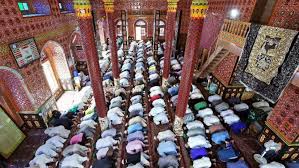Dr Noor Zahgeer
Ramadan, the ninth month of the Islamic lunar calendar, is more than just abstaining from food and drink from dawn to dusk. It’s a sacred period observed by millions of Muslims worldwide, a time for profound spiritual growth, self-discipline, reflection, empathy, and strengthened community bonds.
At the heart of Ramadan lies the practice of Sawm, or fasting. This isn’t simply about physical hunger; it’s a form of spiritual purification. By abstaining from worldly pleasures, Muslims cultivate a deeper appreciation for Allah’s blessings and develop empathy for those less fortunate. Hunger pangs become a reminder of the struggles faced by many, fostering compassion and the urge to help.
Fasting also hones self-discipline. Resisting the urge to eat or drink teaches willpower and control. It’s a training ground for managing desires throughout life, not just during Ramadan. This newfound self-control spills over into other aspects of life, fostering better decision-making and a stronger moral compass.
But Ramadan transcends physical limitations. It’s a period of intense focus on prayer. Taraweeh, special night prayers, become a cornerstone of the month. Muslims devote more time to reciting the Quran, the holy book of Islam. This increased devotion strengthens their connection with Allah, seeking forgiveness, cleansing hearts, and deepening their understanding of their faith.
The spirit of Ramadan extends beyond the individual. It’s a powerful time for community building and strengthening social bonds. Muslims come together for pre-dawn meals (Suhoor) and nightly gatherings to break the fast (Iftar). These shared experiences foster a sense of belonging and togetherness, reminding everyone of the importance of family, friends, and the wider community.
Charity, another pillar of Islam, takes center stage during Ramadan. Zakat, the obligatory giving of alms to the poor, becomes a more significant act. Muslims are encouraged to donate generously to those in need, fostering a spirit of compassion and social responsibility. Acts of charity, big or small, become a way of expressing gratitude for one’s blessings and helping others experience the joy of Ramadan.
Ramadan is also a period for introspection and self-reflection. Muslims are encouraged to contemplate their actions, mend broken relationships, and seek forgiveness. It’s a time to confront personal shortcomings, set goals for self-improvement, and recommit to living a righteous life. This introspection paves the way for personal growth and a renewed sense of purpose.
The culmination of these practices leads to a form of spiritual enlightenment. By experiencing hunger, Muslims develop empathy and appreciate the true value of sustenance. Through self-discipline and increased devotion, they strengthen their connection with Allah. Acts of charity cultivate compassion and a sense of community. Finally, introspection leads to self-improvement and a renewed commitment to living a righteous life.
This transformative journey isn’t without its challenges. Hunger pangs can be difficult to manage, and staying focused on spiritual pursuits amidst daily routines can be demanding. However, the rewards far outweigh the difficulties. Ramadan provides Muslims with the tools and environment to reconnect with their faith, strengthen their character, and build a more meaningful life.
Ramadan transcends the act of fasting. It’s a multi-faceted spiritual journey that fosters self-discipline, empathy, compassion, and a deeper connection with Allah. It’s a time for personal growth, community building, and self-reflection. Ultimately, Ramadan guides Muslims towards a form of spiritual enlightenment, a renewed sense of purpose, and a commitment to living a life that reflects their faith and values. As the crescent moon marks the end of Ramadan, Muslims carry these lessons and experiences throughout the year, striving to make them a permanent part of their lives.




